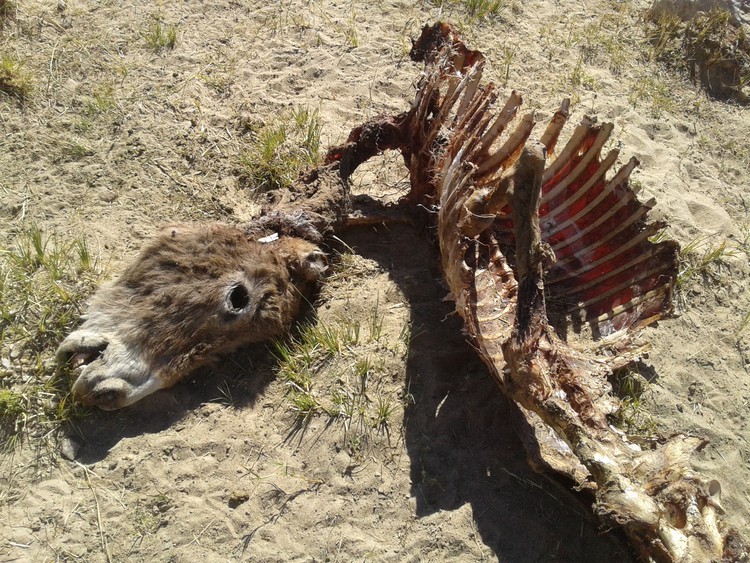Donkeys smuggled from SA to China for medicine
North West government to start donkey production programme
A Johannesburg businessman was arrested this week after falsely declaring a shipment of 300 donkey hides at OR Tambo airport. Investigators suspect that the man, a Chinese national, is the leader of a local donkey smuggling ring.
Gelatin from donkey hides is used to manufacture a traditional Chinese medicine called ejiao. Prescribed for treating anaemia, sleeplessness and excessive menstrual bleeding, among other ailments, ejiao sells for up to R5,000 per kg. (Though clinical evidence for these treatments is lacking, a small peer-reviewed study suggests ejiao may be effective for treating anaemia.)
Surging demand and a shortage of donkeys in China have led, in the last few years, to the unprecedented emergence of a global donkey market, with reports of large-scale trade across Africa. According to Grace de Lange from the National Council of SPCAs (NSPCA) Farm Animal Protection Unit, donkey prices in South Africa have increased more than fourfold in the last two years.
The trade, though not technically illegal, is poorly regulated, and has drawn condemnation from welfare groups following reports of donkeys being slaughtered inhumanely. “Donkeys are the latest victims of the trade in animal parts ‘for medicinal purposes’ to the Far East,” wrote the NSPCA in a statement last September, when news of the trade first broke.
South Africa’s Animal Protection Act forbids cruelty towards animals. According to Mpho Mokoena, an inspector in the NSPCA’s Farm Animal Protection Unit, large numbers of donkeys have been slaughtered using knives and hammers in rural parts of Limpopo, the Northern Cape, and North West Province. “It’s extremely upsetting to see the remains,” Mokoena said.
In an incident last October SPCA officials intercepted a flatbed truck carrying 41 “crushed, dead or dying” donkeys in Limpopo. Four foreign African men were sentenced to 8 months in jail.
The confiscation at O.R. Tambo took place on 15 February after customs officials noticed a foul smell emanating from 39 boxes labeled ‘cladding’. The boxes were destined for Hong Kong.
Four days later police raided a farm in Randfontein, confiscating more than 1,000 skins. The premises had been rented by the same man whose fraudulent shipment was blocked. (Police have not yet released the man’s name, which is known to GroundUp, and did not respond to questions in time for publication.)
“Government is starting to take the illegal skins issue seriously,” said Ashley Ness from the Highveld Horse Care Unit (HHCU), a welfare nonprofit that has been monitoring the trade. “Hopefully this will lead to more arrests.”
Separately, the North West Department of Rural, Environmental and Agricultural Development (READ) announced on Tuesday that it was embarking on a formal “donkey production program”, investing in farms and equine abattoirs for meeting Chinese demand. Provincial representatives signed a memorandum of understanding with China last year.
“The spike in donkey hide demand around the world means that donkeys and donkey products are an agricultural commodity and will contribute to [growth] in the province,” the department wrote in a statement. “The Department strongly condemns … illegal trade of [donkey] hides and meat.”
But Ness, from the HHCU, feared that these initiatives would lead to further animal abuse. “Who’s going to monitor the facilities? There’s a risk that this will cause more welfare issues.”
The HCCU launched a petition the same day calling for an end to all donkey slaughter in South Africa. By Friday afternoon it had drawn nearly 500 signatures.
Gumtree South Africa announced on Friday that is was prohibiting all sales of donkeys and donkey skins on its platform. “We decided that extreme measures would be necessary to prevent further unsavoury practises,” spokesperson Claire Cobbledick said.

Support independent journalism
Donate using Payfast

Don't miss out on the latest news
We respect your privacy, and promise we won't spam you.
Next: Russian nuclear deal places massive liability on South Africans
Previous: Robertson Abattoir settlement reached six years later
© 2017 GroundUp. 
This article is licensed under a Creative Commons Attribution-NoDerivatives 4.0 International License.
You may republish this article, so long as you credit the authors and GroundUp, and do not change the text. Please include a link back to the original article.

